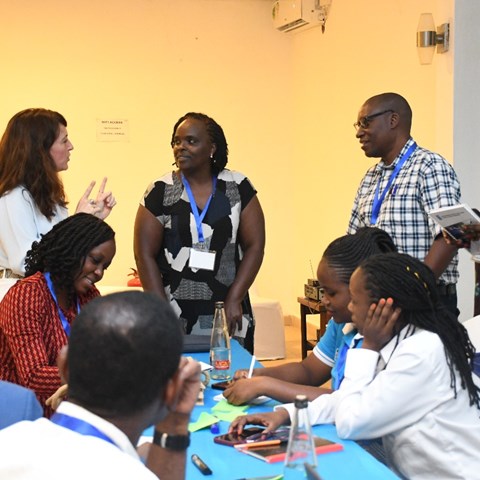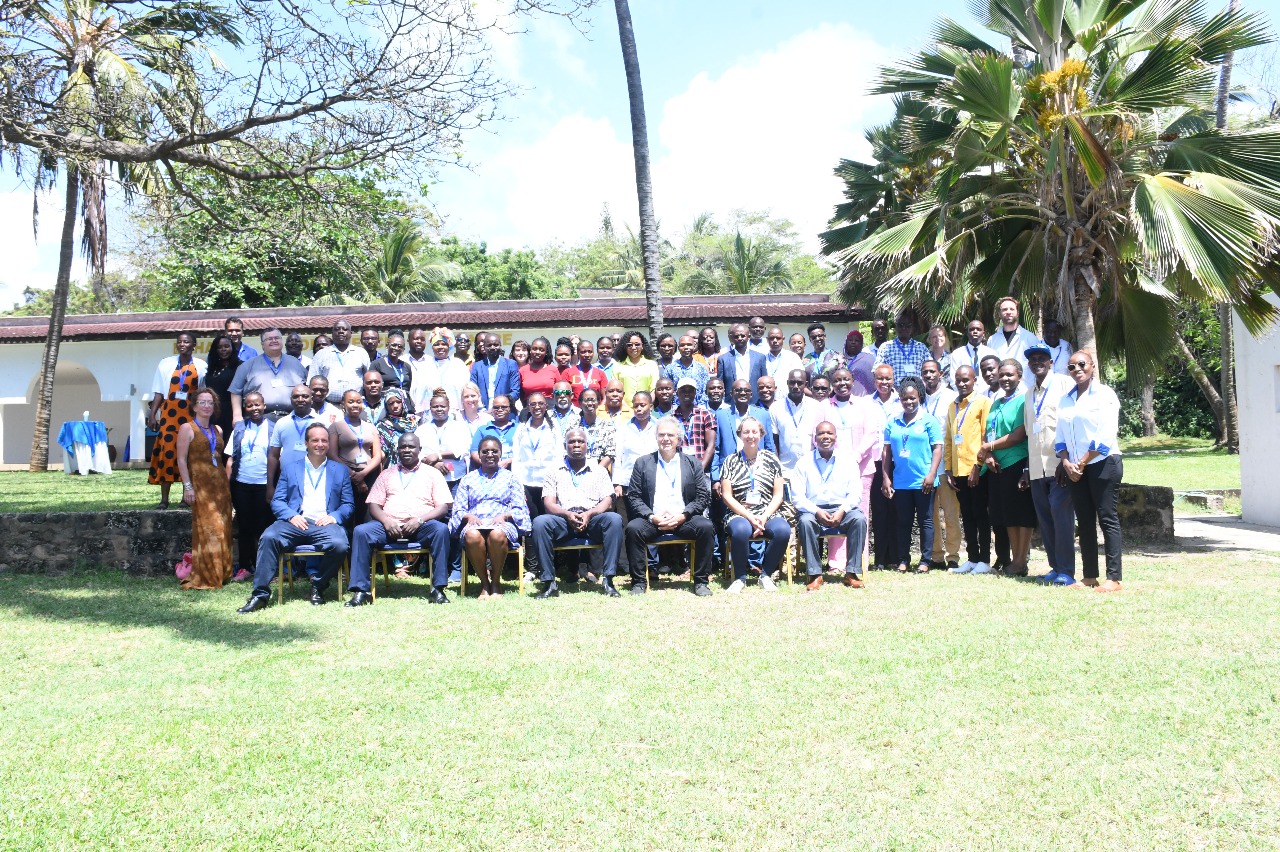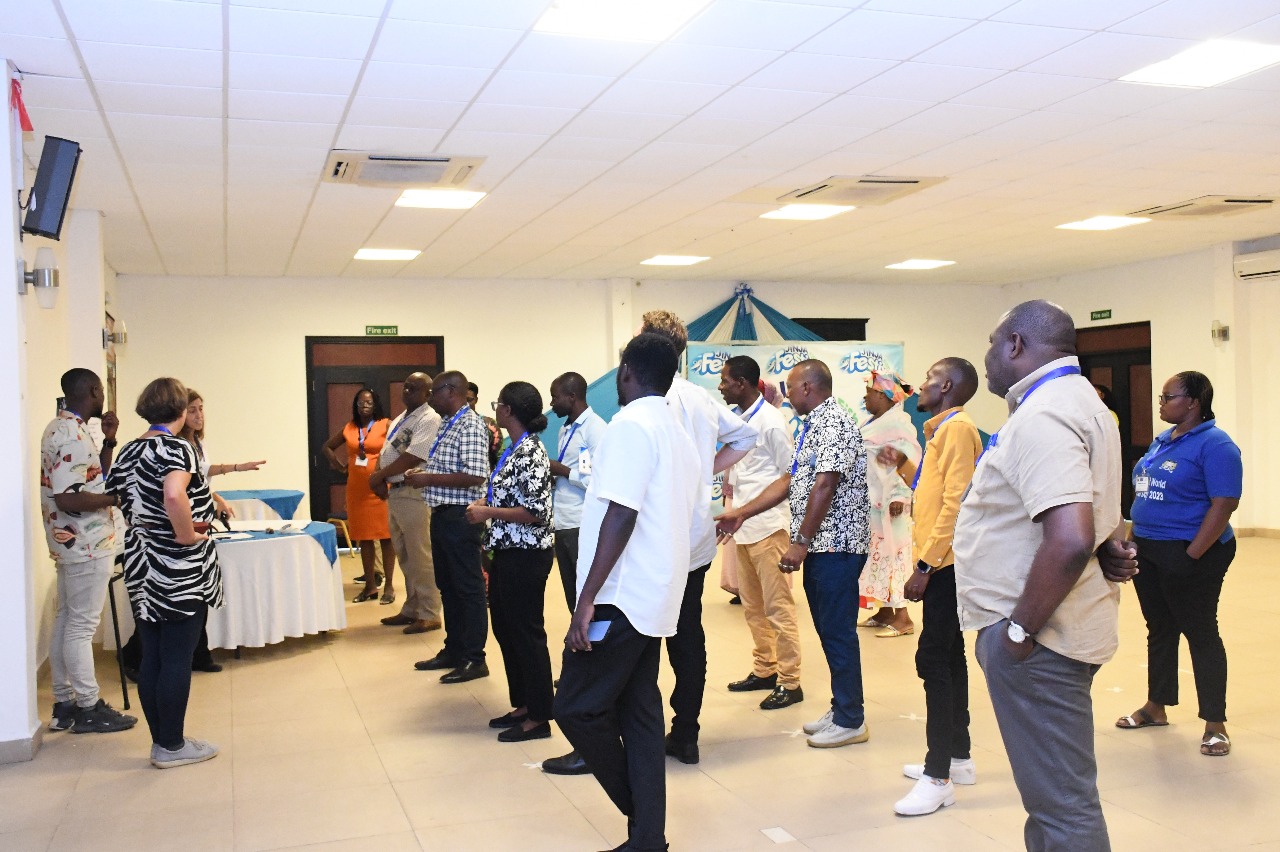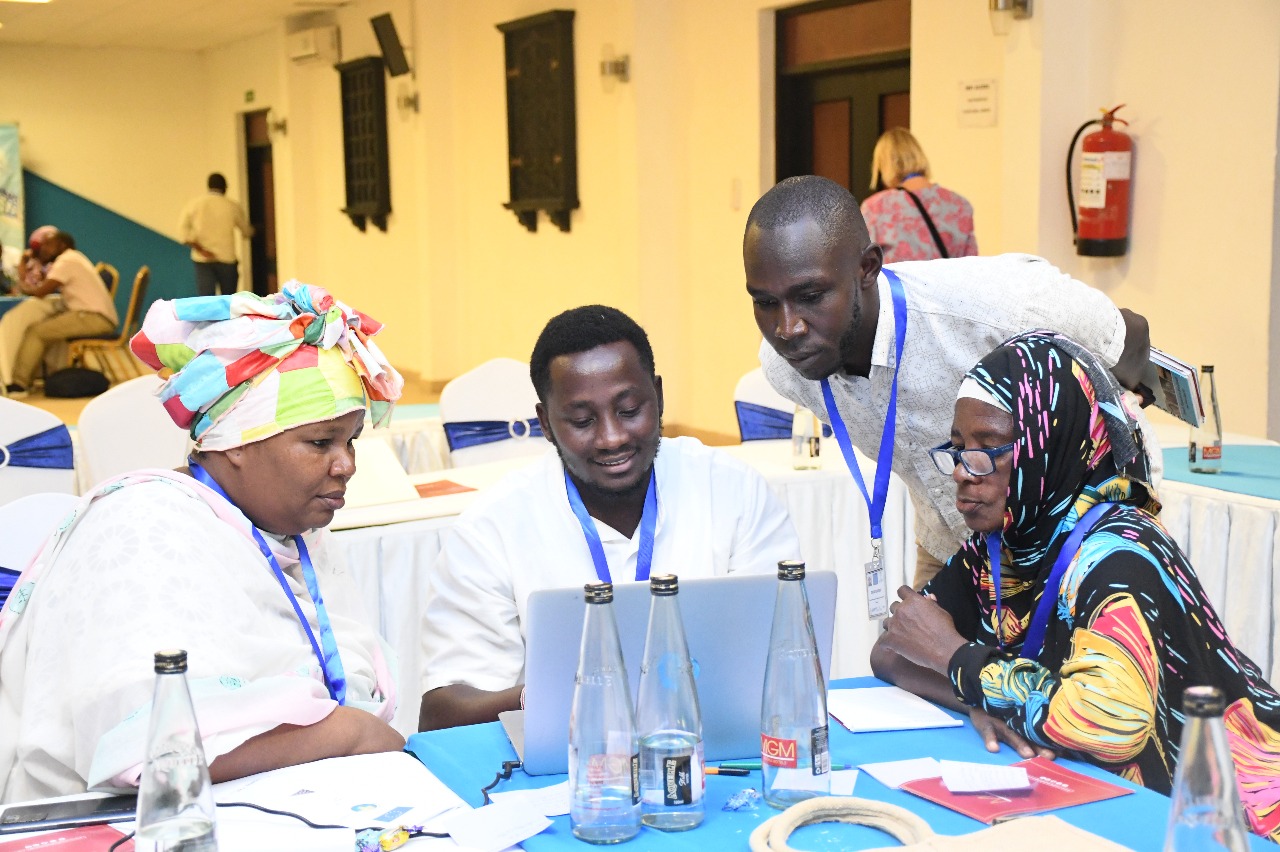Contact
Department of People and Society

The SASi-SPi project organized a Science-Policy Lab (S-POL) in Mombasa to advance shaping policy options towards more inclusive aquatic food systems. The event brought together 46 participants from nine countries to address critical challenges facing small-scale actors in aquatic food systems.
The workshop, hosted in collaboration with the Kenya Marine and Fisheries Research Institute (KMFRI), focused on exploring policy options that would allow to improve availability, access, utilization, and nutrition of aquatic foods while reducing systemic inequalities for small-scale actors. Participants represented a diverse range of stakeholders, including policy makers, fisher organizations, private sector representatives, civil society organizations, and academic researchers from Kenya, Mozambique, Tanzania, Uganda, Zambia, Burundi, Madagascar, Mauritius, and Seychelles.

The S-POL methodology involved a comprehensive four-step process that began with an online pre-engagement session to introduce the event and the preparatory scientific work that was done, and collect preliminary insights from diverse perspectives brought by participants. This was followed by preparatory field visits to local communities, building trust and understanding ground-level challenges for them. The in-person workshop in Mombasa served as the core of the collaborative effort, followed by an online sense-making session which serve as reality check of the conclusions shared by the organizing team with participants, and as a mean to validate collaborative reflections.

Preparatory field visits to two local groups revealed critical insights into the challenges facing small-scale aquatic food producers. The Kibokoni Aquaculture Umoja Self-Help Group, comprising 26 members with 21 women, manages fish farming ponds while confronting infrastructure challenges, high operational costs, and complex permitting processes. Similarly, the Mtwapa Beach Management Unit highlighted ongoing struggles with market access, declining catches, and infrastructure limitations.

Through collaborative discussions, participants developed six critical policy options to transform aquatic food systems. These recommendations range from improving financial services and capacity building to enhancing food consumption and fostering technological innovations for small-scale aquatic food producers. A unique "power walk" exercise brought additional depth to the discussions, adjusting voting weights to amplify voices from traditionally sidelined stakeholders.
The Science-Policy Lab demonstrated the power of collaborative approaches that prioritize inclusive participation, and multistakeholder dialogue. By bringing together diverse stakeholders and amplifying “left behind” voices, SASi-SPi through the S-POL process is charting a path towards policy options that will ensure the transition towards more equitable and sustainable aquatic food systems in East Africa.

The S-POL methodology prioritizes deep community engagement. This was endorsed by participants who emphasized that preliminary field visits and local language facilitation were critical for building trust, enabling full participation and engagement of these actors. Local facilitators who spoke the native language played a significant role in ensuring meaningful participation, particularly for small-scale actors who might otherwise feel marginalized.
During the S-POL several key insights brought by the scientific work were highlighted, including the need for more comprehensive policy alignment between fisheries, aquaculture, and public health nutrition sectors. The majority of national diet or nutrition plans have historically included little to no consideration of aquatic food systems, presenting a significant opportunity for future policy development.
The collaborative effort enabled on the S-POL allowed to tease out the complex trade-offs in transforming aquatic food systems. While technological innovations and increased production can create opportunities, they do not automatically translate to improved consumption or nutrition for small-scale producers. This nuanced understanding underscores the need for holistic, multi-dimensional approaches to food system transformation.
The S-POL methodology is more than just a research approach or a tool to facilitate the science-policy interface—it is a transformative dialogue that reimagines how policy solutions can emerge from diverse types of knowledge. By creating spaces for genuine interaction among diverse stakeholders and facilitating joint reflections, this process reveals complex systemic challenges within the food system that traditional research methods often overlook.